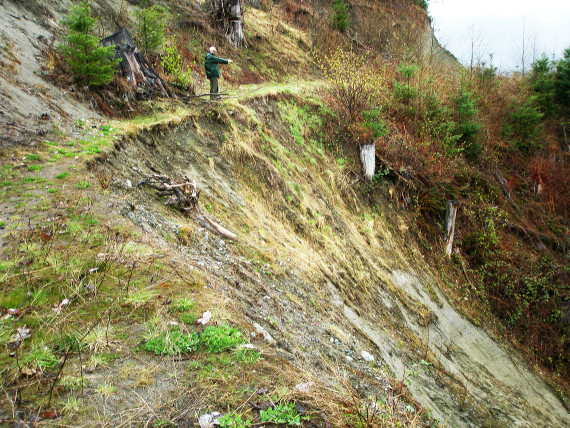
This project upgraded and decommissioned approximately 19 miles of forest roads on United States Forest Service property in the Suiattle River basin. Roads have increased sediment delivery above natural levels in this watershed, particularly in tributary streams, by increased mass wasting rates. Poorly designed or maintained forest roads can reduce spawning and rearing habitat quality by increasing sediment delivered to streams through surface erosion and mass wasting processes. For this reason, a reduction in sediment supply is a high priority for these areas.
The objective was to reduce sediment impacts in several tributary streams to the Suiattle River, namely Big Creek, Grade Creek, and Tenas Creek, which all support Chinook, pink, coho, steelhead, cutthroat, and native char use. This project focused on water collection and concentration which trigger road failures.
Field inventories were used to identify and prioritize sites. Road segments were rated as high risk if they have the potential to cause a mass wasting event that could deliver sediment directly to key habitat. High risk segments were treated by upgrading or decommissioning high hazard roads. Upgrading roads involves upgrading stream crossings, adding and upgrading drainage structures, cleaning ditch lines, and removing or stabilizing hazardous fill material. Decommissioning roads involves removing all culverts, constructing water bars to increase drainage across the road, removing hazardous fill material from stream crossings and unstable slopes, and blocking the road to vehicle access. This project upgraded 3.8 miles of road, and decommissioned 15.3 miles of road to accomplish these sediment reduction goals. Work primarily focused on Betty’s Pass road, Tenas Creek road, the Huckleberry Mountain road.
Project Status/Timeline
Road upgrades and decommissioning were completed between 2008 and 2010.
Primary Project Contact
Devin Smith – Senior Restoration Ecologist
Funding Sources
Salmon Recovery Funding Board
Project Partners
United States Forest Service (Mt Baker-Snoqualmie National Forest)

